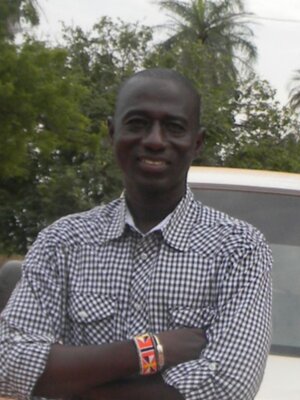
Bala Saho
University of Illinois at Urbana-Champaign Alumna
GRID Minor, 2007
MA in African Studies, 2007
Current Position
Assistant Professor, Department of History
The University of Oklahoma, Norman
What is the focus of your current work and/or subject of your current research?
y forthcoming book Contours of Change: Muslim Courts, Women, and Islamic Society in Colonial Bathurst, the Gambia, 1905–1965,examines the place of women in the formation of colonial Bathurst (Banjul), to the evolution of women’s understanding of the importance of law in securing their rights, as well as the ways in which women utilized the new qadi court system to fight for growing rights within the domestic sphere. Gambian women’s increased awareness is significant because it signals changes that were already underway in the Gambia colony and protectorate during the early colonial period. The research complements uniquely works by scholars of other African societies with similar colonial experience (Stockreiter, 2015; Burrill, 2015; Stiles and Thompson, 2015, Hanretta, 2009; Roberts, 2005; Fair, 2001; Hirsch, 1998). Clearly, records from the qadi court in the Gambia speak in agreement with these works that often qadis were sympathetic to women’s claims and the court opened up ways in which women negotiated conjugal and other forms of relationships and constructed a sense of self in African colonial societies
My current research Negotiating Womanhood and the Peril of Childless (Kañeleng) Women in the Gambia, explores how voluntary associations of childless women, or Kañeleng Kafo, shape perceptions of infertility in modern Gambia and how they counter the burden of childlessness and reflect – or help redefine – the cultural construction of “womanhood” in the Gambia.
Suntukunto bambaroo,
Wuluu M’fanaŋ ye,
Doolu niŋ I la bambaroo,
Nfanaŋ so kilinŋ na.
Garbage pumpkin,
Bear me a child,
Others have children,
Also give me one.
Although both men and women live with the pain of infertility, in the Gambia it is considered the duty of the woman to find solutions to the problem. This song is a mother-in-law's plea addressing her son's wife. The elder woman urges her daughter-in-law to make an effort to bear children rather than focus excessively on her individual beauty. The song shames women, blaming young women for their childless situations, and testifying to the community's investment in each woman's fertility. Above all, the song protests childlessness and illustrates the profound efforts infertile women ought to make to end the burden of infertility.
In the Gambia, the word Kañeleng refers to a woman who cannot bear children, whom society considers infertile, or whose children die at an early age. The association Kañeleng Kafo (Childless Women’s Association)is a voluntary organization that exists only in the Gambia, Senegal, and Guinea Bissau. Any childless woman can be a member of a Kañeleng Kafo. However, her decision largely depends on the encouragement and support from elderly women from her kin group and the husband’s kin group. Men born out of Kañelengyaa (the practice of childlessness) can also become members.
To become a member, the aspirant has to undergo aritual that sanctifies membership and creates an opportunity for the woman to develop a covenant relation or joking relation (sanawu) with the public. The core of the ritual is a bath – to cleanse the body of any “bad” spirit. My research provides the first full historical analysis of these associations, interrogating how the kañeleng reconfigure female-male relationships, reproduction, and the social worth of infertile women. My study introduces the traditional processes and mechanisms (efforts and practices that lay outside modern day hospitals and clinics) by which the kañeleng struggle to cope with and challenge the issues of childlessness in the Gambia by participating in rituals, prayers, performances, songs, thieving, and transvestite role inversions. (Weil, 1971; Vansina, 1990; Spear, 2003; Saho, 2014). I examine how these infertile women assert themselves in a social order that rejects them, highlighting the creation and meaning of ritual space. I also explore how these infertile women’s societies function, generating a sense of worth and solidarity among their members. My study analyzes the specific mechanisms by which such women are marginalized, and evaluates the efficacy of women’s societies in countering that marginalization.
How has your GRID minor helped you in your career?
The GRID served as a foundation and as an instrument to study society through a multi-dimensional perspective. While it provided with me with knowledge about gender studies, it helped me to work with women and men in different capacities.
Do you have any advice or suggestions for current GRID Students?
GRID can be a surprisingly useful tool in life. I would take it more seriously even if I am not sure of what to do with it at the moment.
How can we learn more about your work through social media? (include website or social media if applicable)